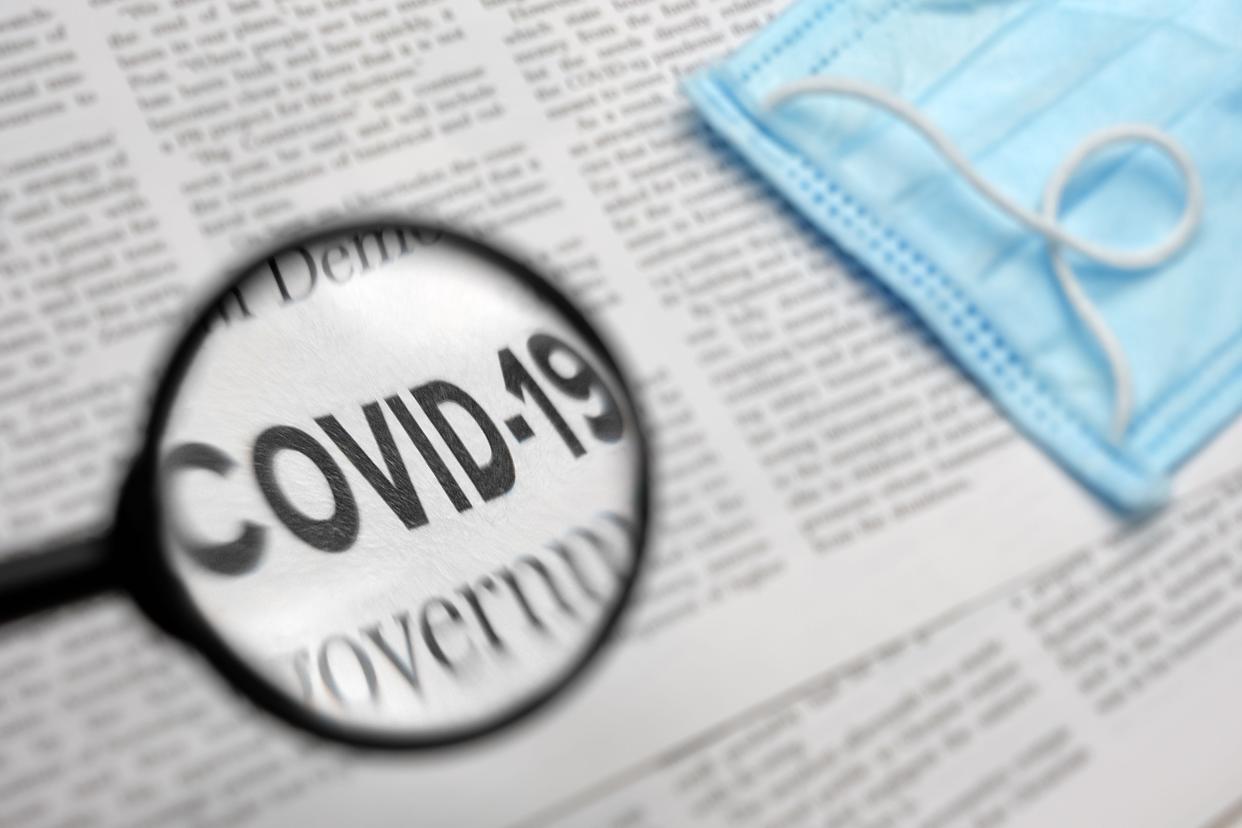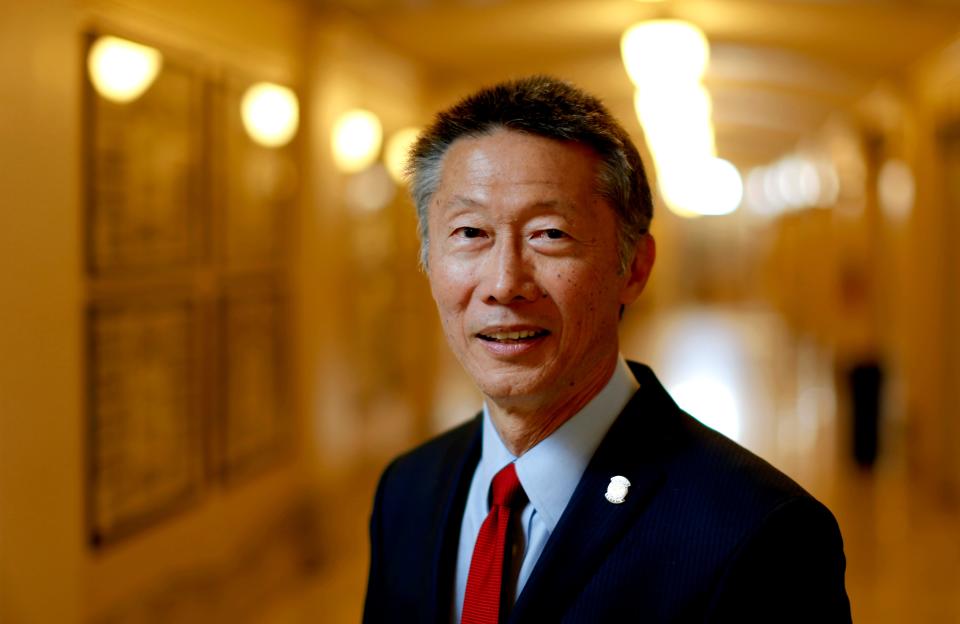Guest: Oklahoma could have avoided 70% of COVID deaths with a temporary mask mandate

- Oops!Something went wrong.Please try again later.
Three years of COVID-19. Nearly 7 million worldwide deaths. About 18,000 deaths here in Oklahoma. Thank God, it is waning. What have we learned about the science, about humanity, about the government's role, and about how we (or future generations) prepare for the next pandemic?
Early on, there were many unknowns about COVID. While we’ve learned a tremendous amount, we’re still learning. What we do know now is it is highly contagious and transmitted primarily in respiratory droplets, which can remain in the air for 12 minutes. We do know mitigation steps such as social distancing and mask wearing work well. We do know the vaccines are highly effective against severe illness, hospitalization and death, while not always preventing the disease. COVID can and does kill. The vaccines make COVID more like a common cold.
The way the mRNA vaccines work is like a miracle. It is a totally new way to make a vaccine. It will not be the last time that technology is used. The benefits of the vaccine far, far outweigh the risks. That is what we always look at in medicine, whether we are talking about a medicine, a procedure or a surgery. I am fully vaccinated and have never had COVID, in spite of caring for many COVID patients, wearing PPE, as well, of course.
Shutting down everything (including schools) early on was the right thing to do, since we did not know how the United States would be affected. However, I now believe we would not have needed to shut things down if we could have gotten people to take all the proper mitigation steps. However, certainly in Oklahoma, I doubt we could have gotten enough people to socially distance and wear masks. I guess it is a freedom thing. However, I will say, I and my surgery colleagues have not been free to not wear a mask in the operating room over my almost 39-year career as an anesthesiologist.
Looking back at June 2020, after we started reopening, if we would have had a temporary statewide mask mandate (until the vaccine became widely available), we could have avoided 70% (the effectiveness of reasonable masks) of the deaths over those nine months or so. We could have avoided 5,000 deaths.
The government's role in a pandemic is promoting public health and preventing death. Mandates might be a part of that. They can be applied, not necessarily to everyone, but to certain activities, such as working in a health care facility, going to a Thunder game, or entering the United States from another country.
There will be another pandemic. Hopefully, not soon. I pray it doesn’t happen during my lifetime. How we, the people, should respond and how the government responds depends on how the pandemic presents. Is the disease transmitted through the air (whether by respiratory droplets or airborne), by touch, by animal bites, through the gastrointestinal tract or through sexual contact? How contagious is the disease and how deadly is it? Initially, we might have to institute some temporary Draconian measures until we get more specific data on the new disease.
The good news is I am very optimistic about science and medicine coming up with therapeutics and perhaps vaccines in a timely manner, which certainly did happen with COVID. However, I am not optimistic about the public’s response here in Oklahoma. Only 59% of Oklahomans are fully vaccinated for COVID, whereas the average in the United States is 69%. That would be one of the reasons we have one of the highest COVID death rate per capita of any state.

Dr. Ervin Yen is an Oklahoma City resident who was an Independent candidate for governor of Oklahoma in 2022. He's also a former state senator for District 40.
This article originally appeared on Oklahoman: Guest: Mandates were essential in government's response to COVID

